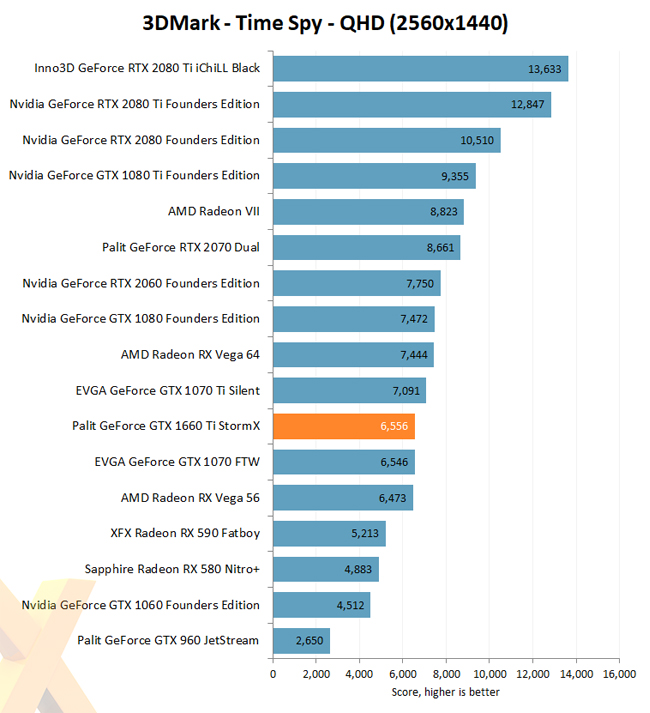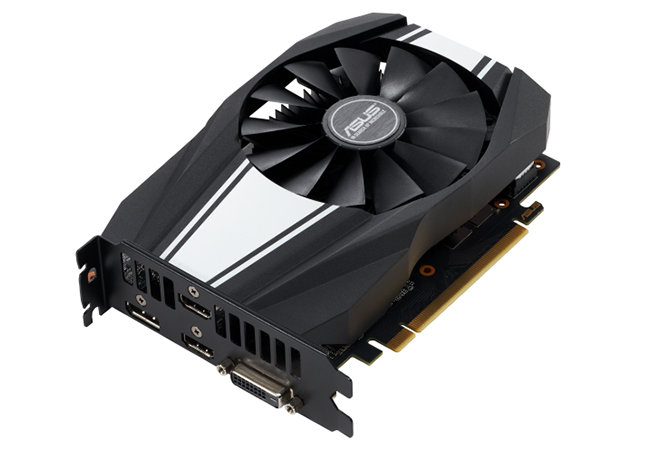Our Aim
To provide you with an overview on New And existing technologies, hopefully helping you understand the changes in the technology. Together with the overviews we hope to bring topical issues to light from a series of independent reviewers saving you the time And hassle of fact finding over the web.
We will over time provide you with quality content which you can browse and subscribe to at your leisure.
TekSpek 's

NVIDIA GeForce GTX 1660 Ti
Date issued:
GeForce GTX 1660 Ti Graphics Card

Nvidia has whet the appetite of enthusiasts with GeForce RTX graphics cards armed with forward-looking technologies that promise to revolutionise in-game visuals for years to come. That's the theory, but features such as ray-tracing and DLSS are still in their infancy, and the inherent costs of creating RTX chips packing over 10-billion transistors restrict consumer cards to the premium end of the market. Even the entry-level RTX 2060 starts at around £315, so how can Nvidia extend the reach of its Turing architecture to a more mainstream audience?
The answer is to strip-out all that RTX magic - Tensor Cores, RT Cores, etc. - and create a leaner, more cost-effective Turing die better suited to the masses. Said die goes by the name of TU116 and makes its first appearance as part of the new GeForce GTX 1660 Ti, priced from £259.
Is it somewhat strange to have both RTX and GTX products in Nvidia's latest stable? Absolutely, and the product numbering format doesn't make things particularly clear. GeForce GTX 1660 Ti is viewed as the logical successor to popular previous-generation cards such as GTX 960 and GTX 1060, but calling this 2019 upgrade a GTX 2060 would of course clash with the existing RTX 2060. It's all a bit confusing, so let's take a deep dive into the specification table to see where GTX 1660 Ti fits in.
GeForce 1660 Ti: going back to basics |
|||||||||
|---|---|---|---|---|---|---|---|---|---|
| RTX 2080 Ti | GTX 1080 Ti | RTX 2080 | GTX 1080 | RTX 2070 | GTX 1070 | RTX 2060 | GTX 1660 Ti | GTX 1060 | |
| Launch date | Sep 2018 | Mar 2017 | Sep 2018 | May 2016 | Oct 2018 | May 2016 | Jan 2019 | Feb 2019 | May 2016 |
| Codename | TU102 | GP102 | TU104 | GP104 | TU106 | GP104 | TU106 | TU116 | GP106 |
| Architecture | Turing | Pascal | Turing | Pascal | Turing | Pascal | Turing | Turing | Pascal |
| Process (nm) | 12 | 16 | 12 | 16 | 12 | 16 | 12 | 12 | 16 |
| Transistors (bn) | 18.6 | 12 | 13.6 | 7.2 | 10.8 | 7.2 | 10.8 | 6.6 | 4.4 |
| Die Size (mm²) | 754 | 471 | 545 | 314 | 445 | 314 | 445 | 284 | 200 |
| Base Clock (MHz) | 1,350 | 1,480 | 1,515 | 1,607 | 1,410 | 1,506 | 1,365 | 1,500 | 1,506 |
| Boost Clock (MHz) | 1,545 | 1,582 | 1,710 | 1,733 | 1,620 | 1,683 | 1,680 | 1,770 | 1,708 |
| Founders Edition Clock (MHz) | 1,635 | - | 1,800 | - | 1,710 | - | 1,680 | - | 1,708 |
| Shaders | 4,352 | 3,584 | 2,944 | 2,560 | 2,304 | 1,920 | 1,920 | 1,536 | 1,280 |
| GFLOPS | 13,448 | 11,340 | 10,068 | 8,873 | 7,465 | 6,463 | 6,221 | 5,437 | 3,855 |
| Founders Edition GFLOPS | 14,231 | - | 10,598 | - | 7,880 | - | 6,221 | - | 3,855 |
| Tensor Cores | 544 | - | 368 | - | 288 | - | 240 | - | - |
| RT Cores | 68 | - | 46 | - | 36 | - | 30 | - | - |
| Memory Size | 11GB | 11GB | 8GB | 8GB | 8GB | 8GB | 6GB | 6GB | 6GB |
| Memory Bus | 352-bit | 352-bit | 256-bit | 256-bit | 256-bit | 256-bit | 192-bit | 192-bit | 192-bit |
| Memory Type | GDDR6 | GDDR5X | GDDR6 | GDDR5X | GDDR6 | GDDR5 | GDDR6 | GDDR6 | GDDR5 |
| Memory Clock | 14Gbps | 11Gbps | 14Gbps | 10Gbps | 14Gbps | 8Gbps | 14Gbps | 12Gbps | 8Gbps |
| Memory Bandwidth | 616 | 484 | 448 | 320 | 448 | 256 | 336 | 288 | 192 |
| ROPs | 88 | 88 | 64 | 64 | 64 | 64 | 48 | 48 | 48 |
| Texture Units | 272 | 224 | 184 | 160 | 144 | 120 | 120 | 96 | 80 |
| L2 cache (KB) | 5,632 | 2,816 | 4,096 | 2,048 | 4,096 | 2,048 | 3,072 | 1,536 | 1,536 |
| Power Connector | 8-pin + 8-pin | 8-pin + 6-pin | 8-pin + 6-pin | 8-pin | 8-pin | 8-pin | 8-pin | 8-pin | 6-pin |
| TDP (watts) | 250 | 250 | 215 | 180 | 175 | 150 | 160 | 120 | 120 |
| Founders Edition TDP (watts) | 260 | - | 225 | - | 185 | - | 160 | - | - |
| Suggested MSRP | $999 | $699 | $699 | $549 | $499 | $379 | $349 | $279 | $249 |
| Founders Edition MSRP | $1,199 | $699 | $799 | $699 | $599 | $449 | $349 | - | $299 |
It is important to note that GTX 1660 Ti is a fundamentally new Turing GPU. Unlike its RTX siblings, which all have RT and Tensor cores integrated into each SM unit, TU116 strips these out completely, as opposed to merely turning them off. In this full implementation of the die, we get eight SMs, resulting in 1,536 shaders and 96 texture units, working together with 48 ROPs and a 6GB GDDR6 frame buffer interfaced via a 192-bit bus.
Having two fewer SMs than the RTX 2060 doesn't appear to be too much of a downgrade, yet the absence of RT and Tensor cores means that the GTX-specific TU116 die is almost 40 per cent smaller than the RTX TU106. The shrunken die is key to hitting that £259 price point, but the streamlined design also has an upside in that Nvidia is able to raise frequencies while keeping to a frugal 120W TDP.
Base and boost clocks have climbed to 1,500MHz and 1,770MHz, respectively, and the heightened speeds should help compensate somewhat for the shader deficit to RTX 2060. The loss of RTX features is of course a downer - GTX 1660 Ti simply isn't able to enjoy certain features that Nvidia has recently been ultra-keen to advocate - but at £259, this latest implementation of the Turing architecture should deliver a significant performance boost over the ageing GTX 1060 from 2016.
Gaming Credentials

The Turing architecture doesn't need fancy Tensor cores to flex its muscle. Benchmarks from leading review sites reveal that GTX 1660 Ti's lean design is comparable to that of a GeForce GTX 1070 from the previous generation. In terms of upgrade path, Nvidia's latest is found to be 45 per cent quicker than the GTX 1060 and a whopping 147 per cent faster than a GTX 960.

Gaming at full-HD 1080p will undoubtedly be silky smooth, and GTX 1660 Ti has the firepower to drive modern games at a 2,560x1,440 QHD resolution while maintaining in excess of 60 frames per second. Impressive stuff for a compact card that uses very little power, ideal for a small-form-factor build, perhaps?
Summary
Having started life as the preserve of the rich, Nvidia's Turing architecture is now being distilled into leaner GPUs that appeal to a wider range of customers. Appreciating that not everybody is ready to jump onboard the RTX bandwagon, the Turing-based GTX 1660 Ti goes back to basics to deliver stellar rasterisation performance in a compact package and at an affordable price.
Wanting to upgrade from an older card, or looking to take your first steps into the world of competitive PC gaming? The GeForce GTX 1660 Ti stands out as a prime candidate in the sub-£300 arena.
